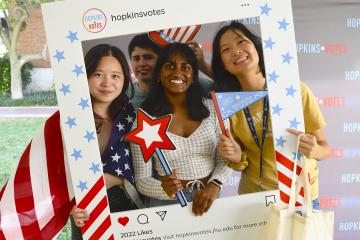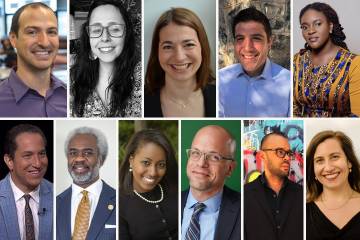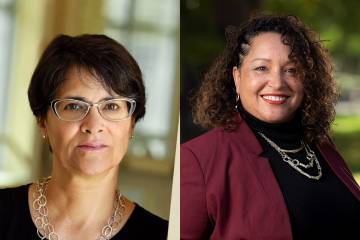Voter Resources
1. Ready to Register?
Each state has its own deadlines for registration, some having already passed for the upcoming election. However, you may still be eligible to register for future elections. Learn more about different states’ requirements.
2. What’s Your Voting Plan?
The voting process can be daunting, especially for first-time voters. Making a plan to vote can reduce anxiety and increase the likelihood of you casting a ballot.
Voting in Maryland
Information about voting in Maryland can be found on the Maryland State Board of Elections website. Basic information on registering to vote and casting your ballot is below.
Register to Vote
The deadline to register to vote or update your voter registration information in Maryland is April 23, 2024, for the Presidential Primary Election. Your voter registration must be up to date with your current address.
If you missed these deadlines, don’t worry—you can still register the same day you vote! Make sure to bring a document that proves where you live when you visit your local polling place.
Request and Submit a Mail-In Ballot
The deadline to request a mail-in ballot through the online system is May 10, 2024 for the Maryland Primary Election. If this deadline has passed and you would like to vote by mail-in ballot, please go to your local board of elections. You can pick up your ballot there and either vote and return it then, or take your ballot with you and return it either by mail or at a ballot drop box in the county where you’re registered by 8 p.m. on Primary Election Day, May 14. If you mail your ballot, it must be postmarked on or before Election Day to be counted. Once your application is submitted, you can check the status of your application online.
Vote Early or on Election Day
Due to a recent change in the law, the Maryland Board of Elections now mails each voter an application for a mail-in ballot. If you prefer to vote in person, early voting centers will be open from Thursday, May 2 through Thursday, May 9 from 7 a.m. until 8 p.m.
Polling places will be open from 7 a.m. until 8 p.m. on Primary Election Day, Tuesday, May 14.
You may vote early at any early voting center in your jurisdiction of residence or at your assigned polling place on election day.
Student Engagement Activities
All-In Campus Democracy Challenge
Johns Hopkins has joined more than 1,400 college campuses across the country in the All-In Campus Democracy Challenge, a national, nonpartisan initiative that inspires, supports, and celebrates colleges and universities working to improve civic learning, political engagement, and voter participation. JHU President Ronald J. Daniels serves on the All-In Challenge’s President’s Council and solicits engagement from fellow Centennial College presidents.
 In 2019, Johns Hopkins received two All-In Campus Democracy Challenge awards after an increase in student participation during the midterm election cycle in 2018. The university earned Gold Certification—reserved for schools with a student voting participation rate between 40% and 49%—as well as a Best in Class award for the most-improved voting rate at a large, private institution. Johns Hopkins continues its commitment to democratic engagement following the 2020 Presidential Election in preparation for the 2022 midterm election cycle.
In 2019, Johns Hopkins received two All-In Campus Democracy Challenge awards after an increase in student participation during the midterm election cycle in 2018. The university earned Gold Certification—reserved for schools with a student voting participation rate between 40% and 49%—as well as a Best in Class award for the most-improved voting rate at a large, private institution. Johns Hopkins continues its commitment to democratic engagement following the 2020 Presidential Election in preparation for the 2022 midterm election cycle.
In 2022, JHU worked to:
- Increase the undergraduate student voting rate during the 2022 primaries and midterm elections.
- Increase the overall voting rate among all eligible students (undergraduate and graduate).
- Continue to increase student voter registration rates annually by ensuring voter registration opportunities are available every semester, with increased attention to local elections
Please stay tuned for the 2024 JHU Voter Action Plan.
Ask Every Student
Johns Hopkins is an active participant in Ask Every Student, a national program that augments the university’s voter engagement activities.












